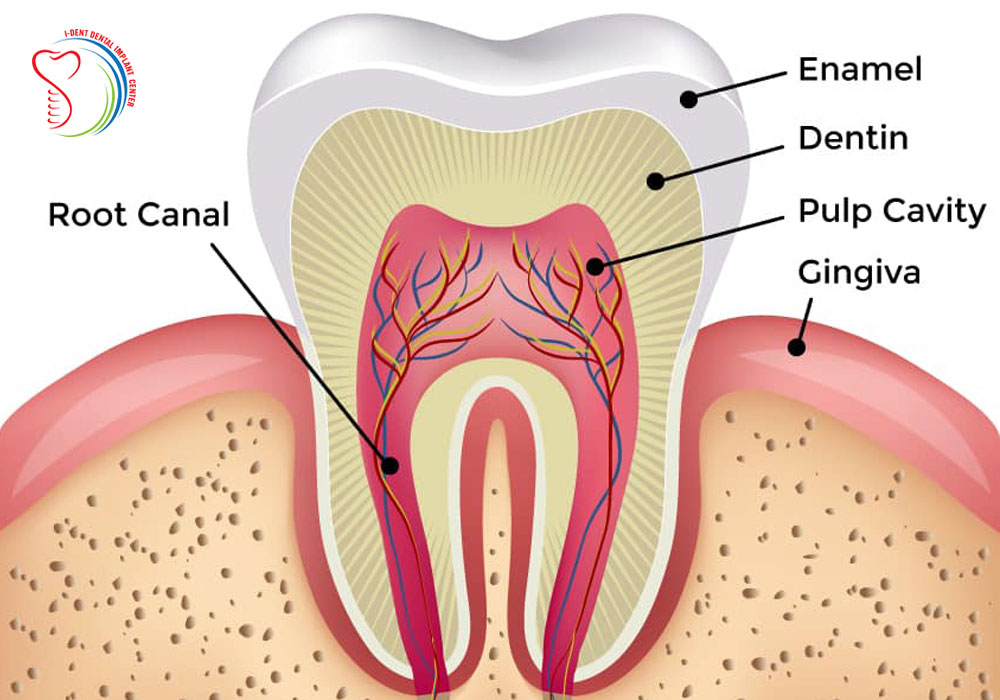Can Toothpaste Restore Enamel? Expert Answers
Tooth enamel, the outermost layer of your teeth, plays a crucial role in protecting your teeth from damage and decay. Over time, however, enamel can wear down due to factors like poor oral hygiene, acidic foods, and environmental factors. This raises the question: Can toothpaste restore enamel? In this article, we will delve into whether toothpaste can reverse enamel erosion, how it works, and what you can do to protect your enamel from further damage.
What Is Tooth Enamel?
Tooth enamel is the hardest substance in the human body, primarily composed of minerals, especially hydroxyapatite.
It provides a protective barrier that shields the sensitive inner structures of your teeth, like the dentin and pulp, from the effects of acidic foods and bacteria. Although enamel is incredibly strong, it is also not capable of regenerating itself, making enamel erosion a serious concern when it begins to wear away.
Enamel can erode due to several factors, including:
- Diet: Acidic foods and beverages like citrus, soda, and wine can strip enamel over time.
- Brushing habits: Brushing too aggressively or using hard-bristled brushes can lead to enamel abrasion.
- Genetics: Some individuals are more prone to enamel erosion due to genetic factors.
- Acid reflux and stomach issues: These can cause stomach acids to reach your mouth and erode enamel.
Once enamel is lost, it does not grow back. This makes it critical to protect and maintain enamel through good oral hygiene practices.
Can Toothpaste Restore Enamel?
The short answer is that toothpaste cannot fully restore lost enamel. Since enamel is not a living tissue, it cannot regenerate. However, some types of toothpaste can help remineralize and strengthen the enamel that remains on your teeth. This process involves replacing some of the minerals that may have been lost due to acid exposure or enamel wear.
The Role of Fluoride
Fluoride, a common ingredient in most toothpastes, plays a key role in remineralizing enamel. It helps to attract minerals like calcium and phosphate back to the enamel surface. This process can reverse some of the early signs of enamel demineralization, making the enamel more resistant to decay. However, fluoride cannot regenerate enamel that is completely worn away.
How Toothpaste Affects Enamel
While toothpaste cannot fully restore enamel, it can play a significant role in protecting and strengthening enamel through several key processes.
Enamel Remineralization
Enamel remineralization is the process by which minerals are replenished in the enamel structure. Toothpastes containing fluoride, calcium phosphate, and other remineralizing agents can help promote this process. Over time, remineralization can reduce the appearance of early enamel damage and make your teeth less vulnerable to future erosion.
Types of Toothpaste for Enamel Care
Not all toothpastes are designed to protect or strengthen enamel. Toothpaste products fall into different categories, and some are better suited for protecting enamel than others.
1. Fluoride Toothpaste
Fluoride toothpaste is one of the most effective options for enamel protection. Fluoride helps remineralize the enamel and strengthens it against decay. Most mainstream toothpastes contain fluoride, which has been proven to reduce cavities and protect enamel.
2. Toothpaste with Calcium Phosphate
Some toothpastes contain calcium phosphate compounds, which work alongside fluoride to remineralize enamel and increase its strength. This is especially beneficial for individuals with sensitive teeth or those who have noticed early signs of enamel erosion.
3. Toothpaste with Hydroxyapatite
Hydroxyapatite is a naturally occurring mineral that is chemically similar to the minerals found in tooth enamel. Some modern toothpastes use synthetic hydroxyapatite to help repair minor enamel damage by replenishing lost minerals.
4. Whitening Toothpaste
Whitening toothpastes often contain abrasives that can help remove surface stains but can also contribute to enamel wear if used excessively. If you are concerned about enamel protection, choose a non-abrasive toothpaste.
Best Toothpaste for Enamel Protection
When selecting a toothpaste for enamel protection, look for products that are specifically formulated to prevent enamel erosion and promote remineralization. Here are some of the best options:
Sensodyne Pronamel This toothpaste is designed to strengthen and protect enamel against acid erosion while also providing relief for sensitive teeth.
Colgate Enamel Health Colgate’s Enamel Health formula helps replenish natural minerals in your enamel, making it more resilient against damage.
Elmex Sensitive Professional Elmex contains a special formulation of amino fluoride that strengthens enamel and helps to prevent sensitivity.
Parodontax Known for its antibacterial properties, Parodontax also contains fluoride, which helps to remineralize enamel and improve oral health.
How to Protect Your Enamel Beyond Toothpaste
While using the right toothpaste is important, protecting your enamel involves a combination of good oral habits and lifestyle changes. Here are some tips to help safeguard your enamel:
1. Brush with Proper Technique
Avoid brushing too aggressively, as this can wear down enamel. Use a soft-bristled toothbrush and brush gently in circular motions.
2. Rinse After Acidic Foods
If you consume acidic foods or drinks, rinse your mouth with water afterward. This helps to neutralize acids and prevent them from attacking your enamel.
3. Avoid Excessive Sugar and Acid
Limit sugary and acidic foods and beverages, as these can lead to enamel erosion over time.
4. Drink Water
Drinking water throughout the day helps to rinse away acids and bacteria that can damage your enamel.
5. Chew Sugar-Free Gum
Chewing sugar-free gum can stimulate saliva production, which helps neutralize acids and promotes enamel remineralization.
Try Lidercare Now!
We Help You Launch New Products, And Continue To Grow. Try Us With 20% Off Your First Order!
FAQ
7.1. Can toothpaste really repair enamel?
Toothpaste cannot fully repair enamel, but it can remineralize and strengthen the enamel that remains on your teeth. Toothpastes with fluoride and calcium phosphate are particularly effective in this regard.
7.2. How long does it take to restore enamel with toothpaste?
Remineralization through toothpaste can take several weeks to show visible results. For best results, it is important to use the right toothpaste consistently while practicing good oral hygiene.
7.3. What is the best toothpaste for enamel rebuilding?
The best toothpaste for rebuilding enamel would contain fluoride, calcium phosphate, or hydroxyapatite. Products like Sensodyne Pronamel and Colgate Enamel Health are top choices for strengthening enamel and reducing sensitivity.
Conclusion
Toothpaste cannot fully restore lost enamel, as enamel does not regenerate on its own. However, with the right toothpaste and oral care habits, you can remineralize and protect the enamel you still have, helping to reduce further damage and keep your teeth healthy. It’s essential to use fluoride toothpaste and avoid aggressive brushing, as well as limit acidic food intake. While toothpaste can’t regenerate lost enamel, it can go a long way in preserving the integrity of your teeth and preventing decay.
By choosing the right products and adopting a proactive approach to oral care, you can ensure that your enamel stays strong and your smile remains bright for years to come.
Table of Contents
Awesome! Share to:
Latest Blog Posts
Check out the latest industry trends and take inspiration from our updated blogs, giving you a fresh insight to help boost your business.



